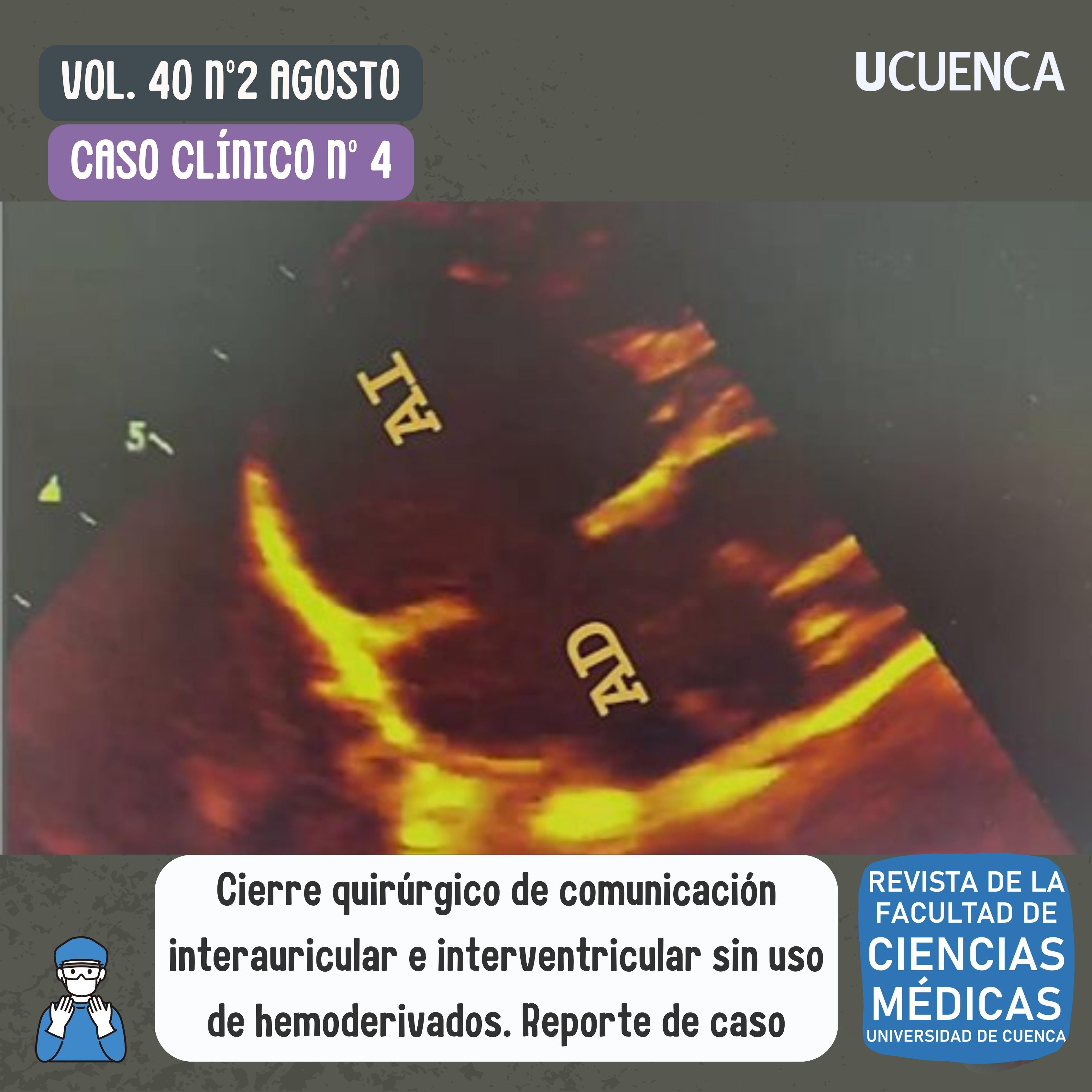Cierre quirúrgico de comunicación interauricular e interventricular sin uso de hemoderivados. Reporte de caso
DOI:
https://doi.org/10.18537/RFCM.40.02.09Palabras clave:
cirugía torácica, medicamentos hemoderivados, cardiopatías congénitas, pediatríaResumen
Introducción: las cardiopatías congénitas cada vez son detectadas a edades más tempranas; la mayoría son corregidas quirúrgicamente mediante sutura directa o la colocación de un parche en las márgenes del defecto, al tratarse de cirugías de alto riesgo es necesario el uso de hemoderivados.
Caso clínico: paciente de sexo femenino de 9 meses de edad con dificultad para ganancia pondo estatural, fatiga precoz durante la alimentación, soplo sistólico grado III, mediante ecocardiograma es diagnosticada de una comunicación interauricular tipo ostium secundum y comunicación interventricular con repercusión hemodinámica moderada; inicialmente tratada con furosemida y espironolactona sin respuesta favorable, decidiéndose resolución quirúrgica; sus progenitores dadas sus creencias religiosas no aceptaron la posibilidad de transfusiones sanguíneas, por lo que se resuelve realizar cirugía utilizando estrategias para reducir la probabilidad de uso de hemoderivados durante y después de la misma.
Conclusión: a pesar de que la cirugía resultó ser exitosa, se plantea el debate sobre la conducta a seguir en situaciones relacionadas con posiciones religiosas y la posibilidad de aplicar tratamientos seguros para los pacientes.
Descargas

Publicado
Número
Sección
Licencia
Derechos de autor 2022 Sindy Andrea Siguencia Romero , Telmo Mauricio Delgado Ayora , Juan Enrique Rodas Mosquera

Esta obra está bajo una licencia internacional Creative Commons Atribución-NoComercial-CompartirIgual 4.0.
Copyright © Autors

Usted es libre de:
 |
Compartir — compartir y redistribuir el material publicado en cualquier medio o formato. |
 |
Adaptar — combinar, transformar y construir sobre el material para cualquier propósito, incluso comercialmente. |
Bajo las siguientes condiciones:
 |
Atribución — Debe otorgar el crédito correspondiente, proporcionar un enlace a la licencia e indicar si se realizaron cambios. Puede hacerlo de cualquier manera razonable, pero de ninguna manera que sugiera que el licenciador lo respalda a usted o a su uso. |
| No comercial — No puede utilizar el material con fines comerciales. | |
| Compartir Igual— si remezcla, transforma o desarrolla el material, debe distribuir sus contribuciones bajo la misma licencia que el original. |
| Sin restricciones adicionales: no puede aplicar términos legales o medidas tecnológicas que restrinjan legalmente a otros a hacer cualquier cosa que permita la licencia. |





